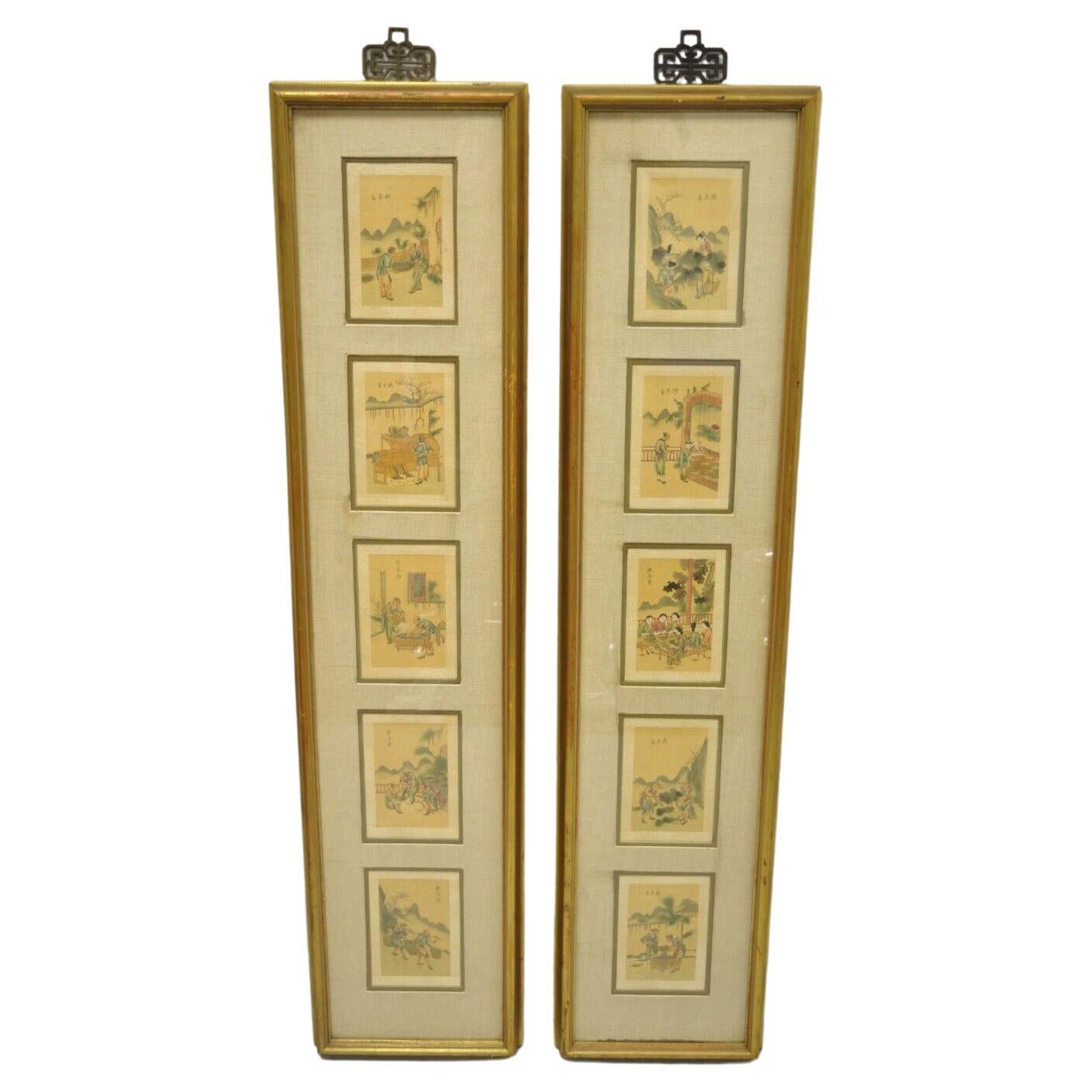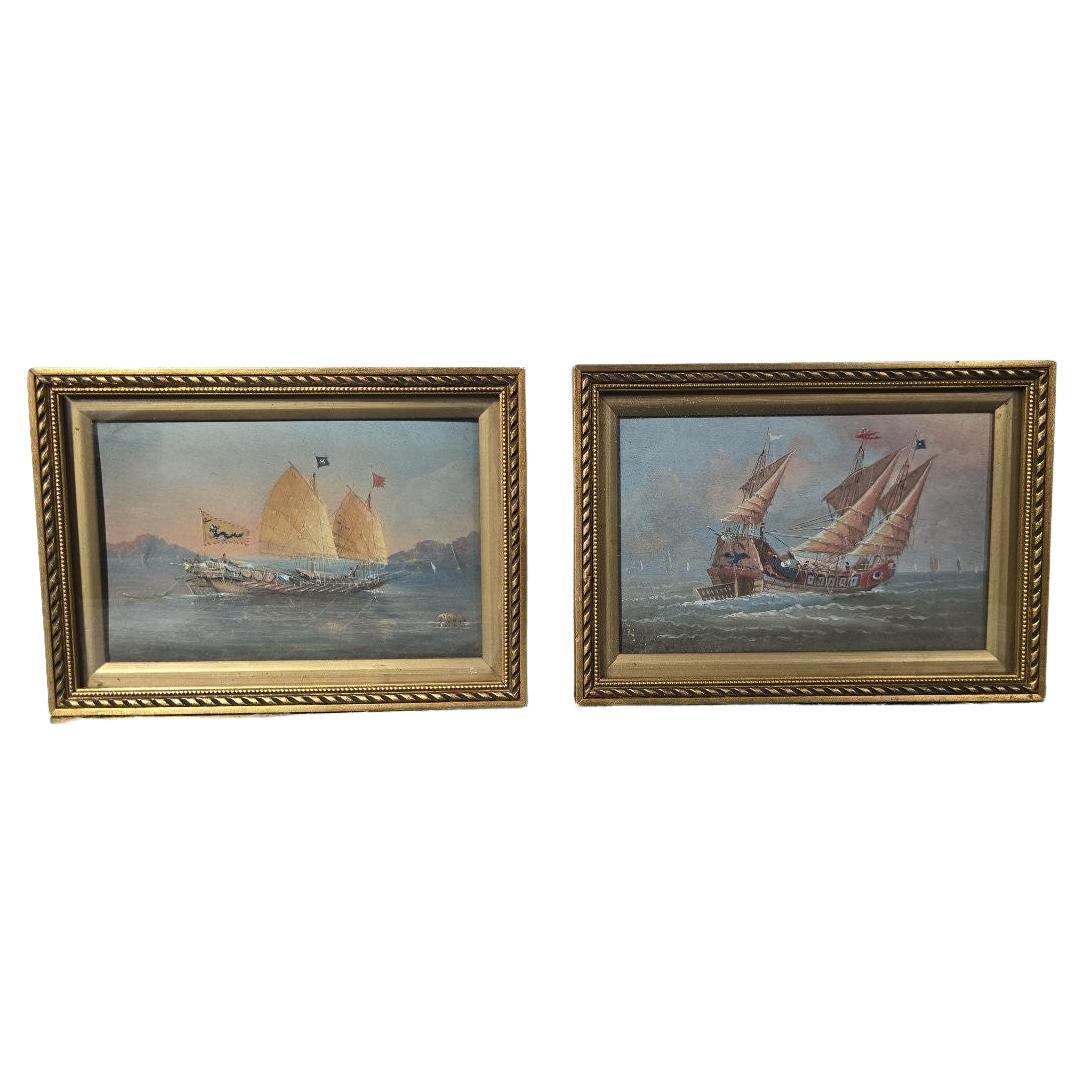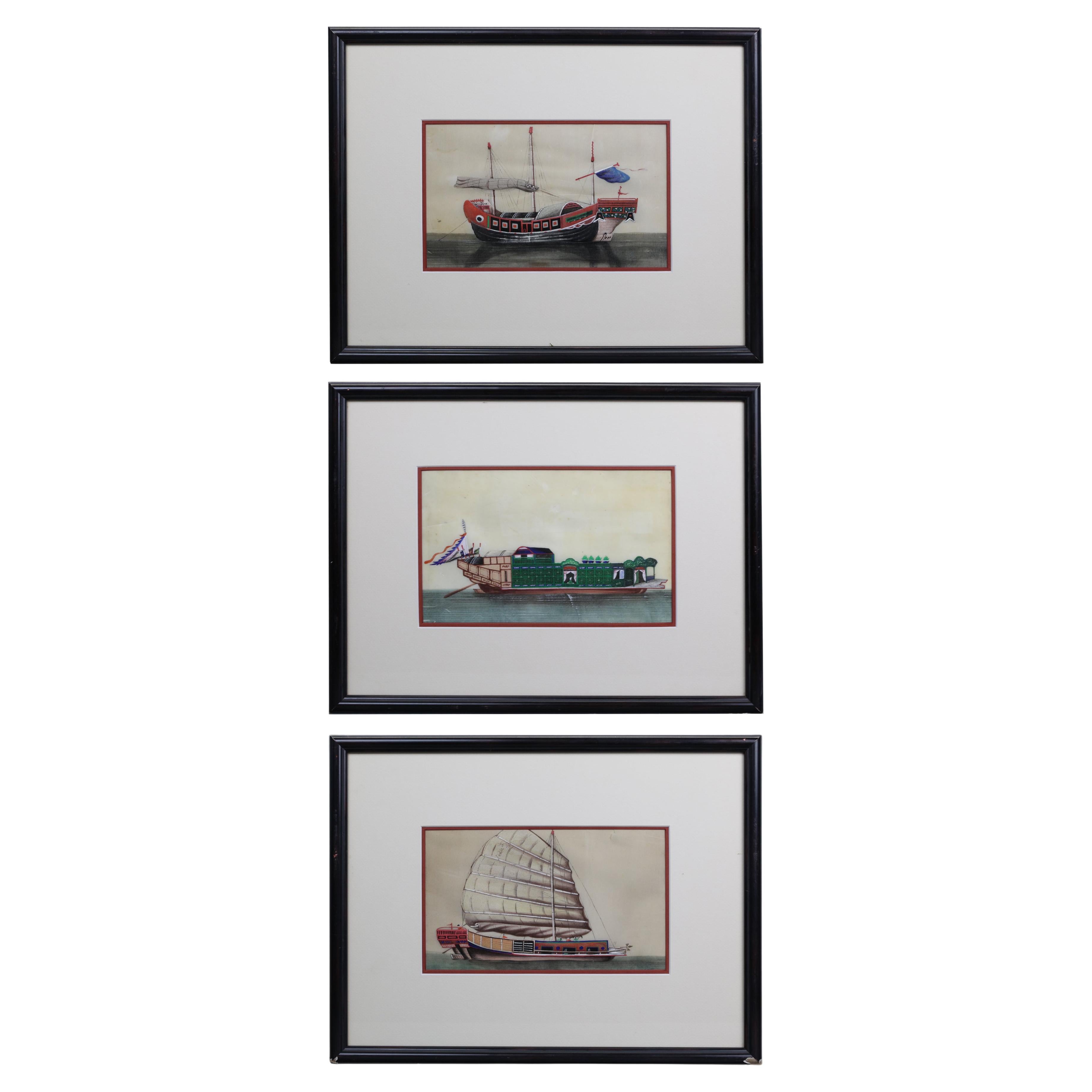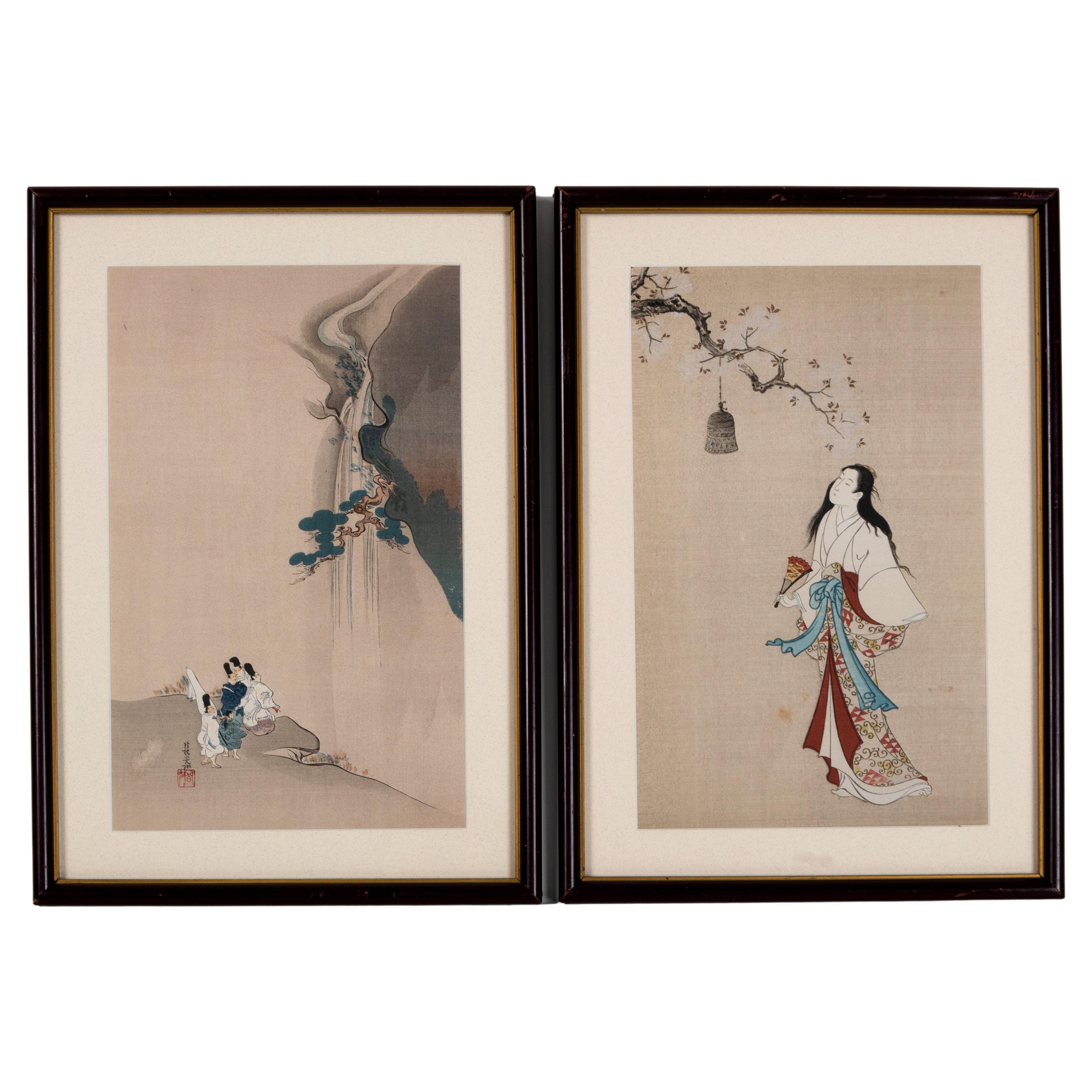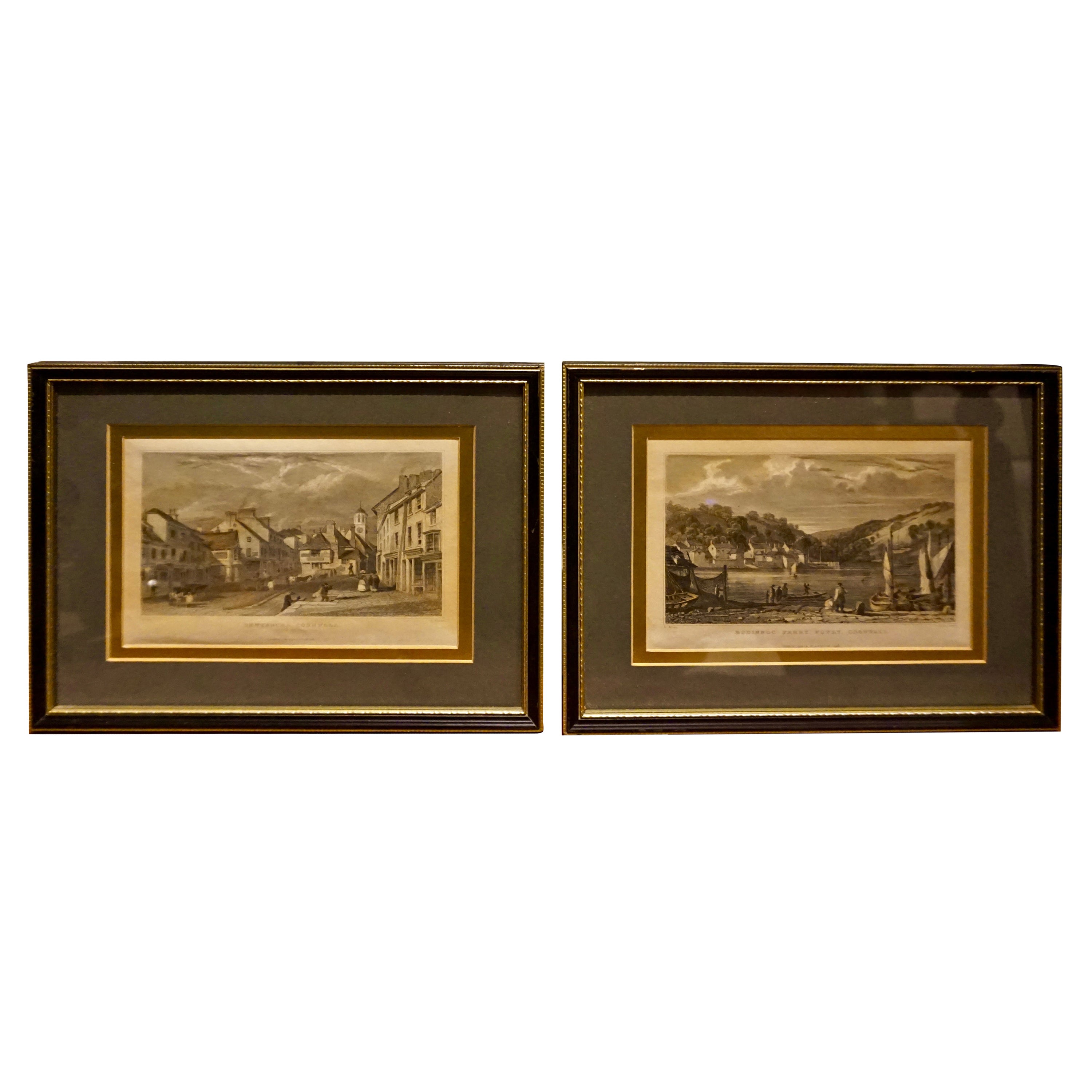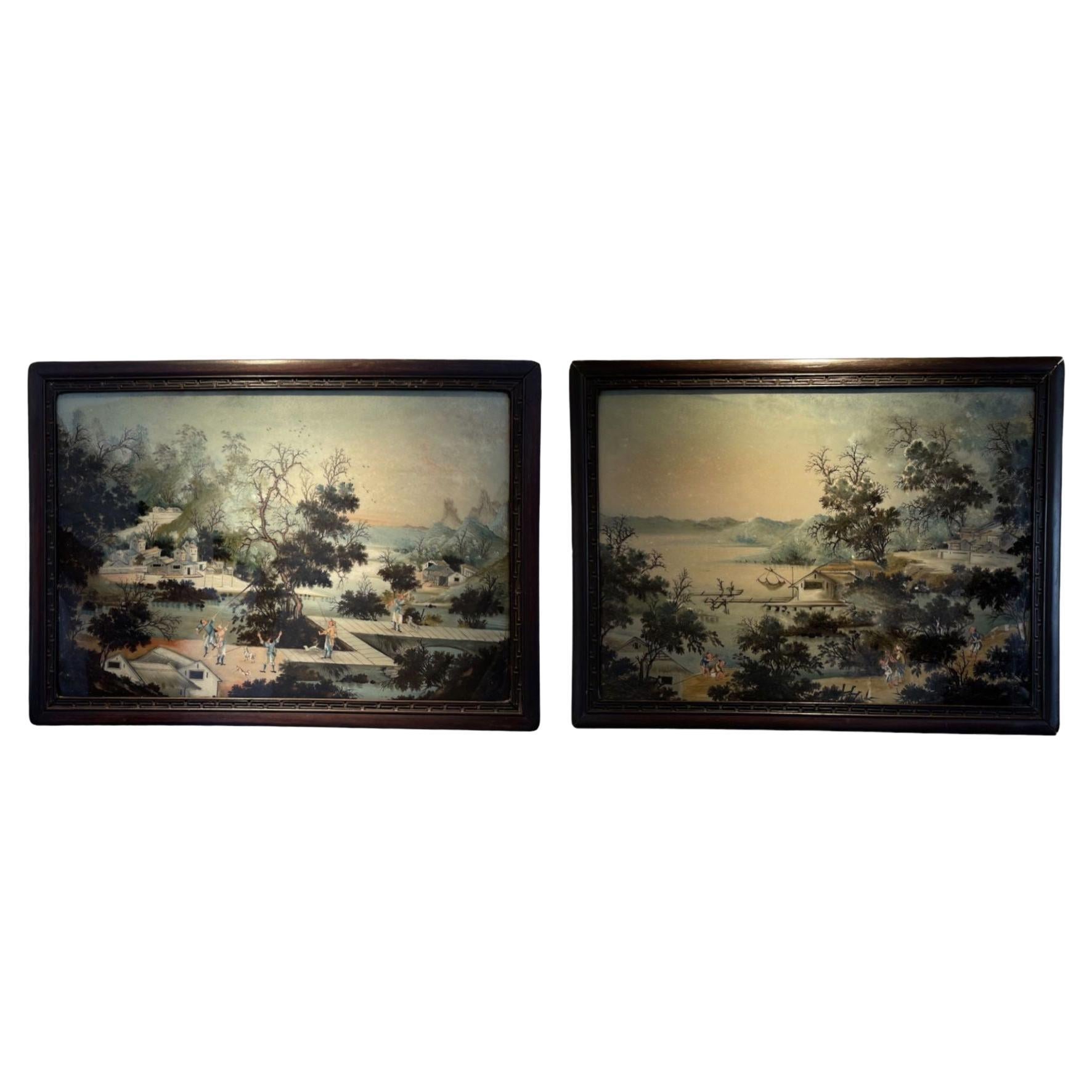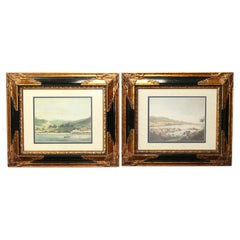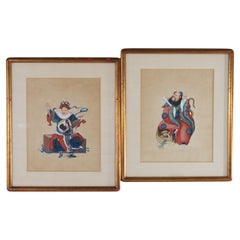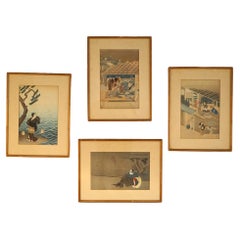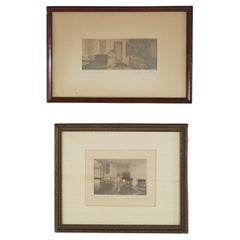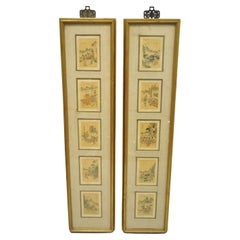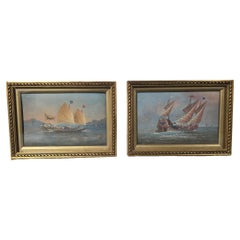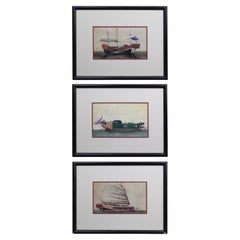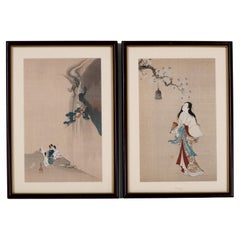Items Similar to Pair of Antique Chinese Prints, Genre & Lake Scenes, Framed, C1920
Want more images or videos?
Request additional images or videos from the seller
1 of 10
Pair of Antique Chinese Prints, Genre & Lake Scenes, Framed, C1920
$360per set
$450per set20% Off
£275.90per set
£344.87per set20% Off
€317.09per set
€396.37per set20% Off
CA$505.64per set
CA$632.05per set20% Off
A$565.90per set
A$707.38per set20% Off
CHF 296.23per set
CHF 370.29per set20% Off
MX$6,874.68per set
MX$8,593.35per set20% Off
NOK 3,761.36per set
NOK 4,701.70per set20% Off
SEK 3,549.49per set
SEK 4,436.86per set20% Off
DKK 2,366.08per set
DKK 2,957.60per set20% Off
About the Item
Pair of Antique Chinese Prints, Genre & Lake Scenes, Framed, C1920
Measures - 12.75"H x 10.5"W x 1"D
- Dimensions:Height: 12.75 in (32.39 cm)Width: 10.5 in (26.67 cm)Depth: 1 in (2.54 cm)
- Sold As:Set of 2
- Materials and Techniques:
- Place of Origin:
- Period:
- Date of Manufacture:c1920
- Condition:Wear consistent with age and use. Overall good condition with minor scratches and torn paper backing; as photographed.
- Seller Location:Big Flats, NY
- Reference Number:Seller: 779451stDibs: LU2396339137992
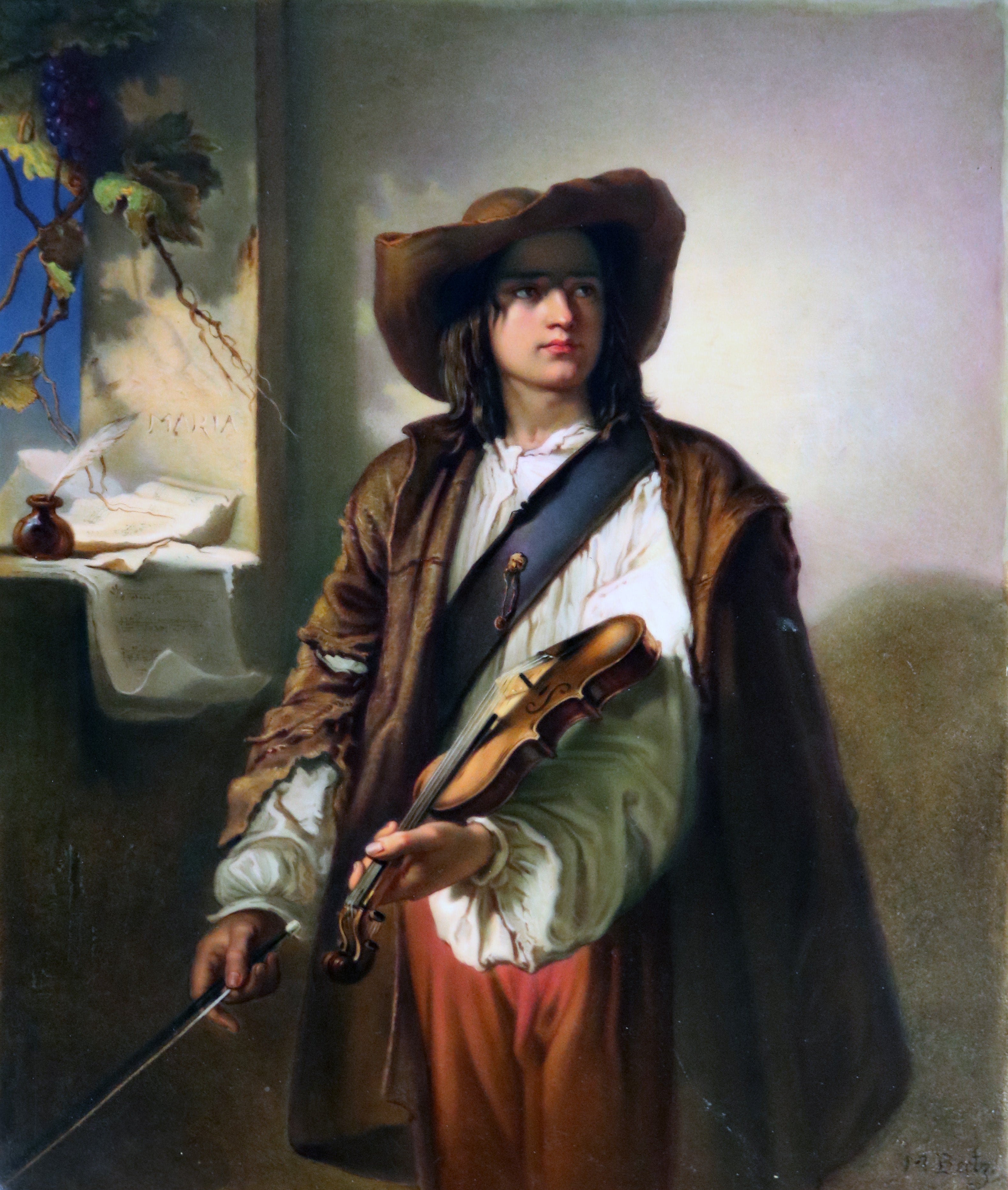
About the Seller
4.8
Gold Seller
Premium sellers maintaining a 4.3+ rating and 24-hour response times
1stDibs seller since 2016
2,731 sales on 1stDibs
Typical response time: 9 hours
- ShippingRetrieving quote...Shipping from: Big Flats, NY
- Return Policy
Authenticity Guarantee
In the unlikely event there’s an issue with an item’s authenticity, contact us within 1 year for a full refund. DetailsMoney-Back Guarantee
If your item is not as described, is damaged in transit, or does not arrive, contact us within 7 days for a full refund. Details24-Hour Cancellation
You have a 24-hour grace period in which to reconsider your purchase, with no questions asked.Vetted Professional Sellers
Our world-class sellers must adhere to strict standards for service and quality, maintaining the integrity of our listings.Price-Match Guarantee
If you find that a seller listed the same item for a lower price elsewhere, we’ll match it.Trusted Global Delivery
Our best-in-class carrier network provides specialized shipping options worldwide, including custom delivery.More From This Seller
View AllPair of Seascape Prints, Framed, 20thC
Located in Big Flats, NY
Pair of Seascape Prints, Framed, 20thC
Measures- 16" H x 19" W x 1.75'' D
Category
20th Century Prints
Materials
Paper
$360 Sale Price / set
20% Off
Pair of Antique Chinese Watercolor on Paper Paintings of Mythological Figures
Located in Big Flats, NY
Pair of Antique Chinese Watercolor on Paper Paintings of Mythological Figures Signed 19thC.
Measures - 20.25"H x 17"W x 1"D.
Thi...
Category
Antique 19th Century Paintings and Screens
Materials
Paper
$280 Sale Price / set
20% Off
Four Antique Japanese Woodblock Prints, Framed, C1920
Located in Big Flats, NY
Four Antique Japanese Woodblock Prints, Framed, C1920
Measures - largest 16 1/2" x 12 1/2" x 1"
Category
Early 20th Century Prints
Materials
Paper
$960 Sale Price / set
20% Off
Antique Wallace Nutting Prints, ‘Lady Arabecca” & “A Fine Effect" Interior C1920
Located in Big Flats, NY
Antique Wallace Nutting Prints, ‘Lady Arabecca” & “A Fine Effect" Interior Scenes, Framed, C1920
Measures- 12.25''H x 18.25''W x 1''D
Category
Early 20th Century Prints
Materials
Paper
$360 Sale Price / set
20% Off
Four Antique Japanese Woodblock Prints C1920
Located in Big Flats, NY
Four Antique Japanese Woodblock Prints, Framed C1920
Measures - 11"H x 13.5"W x .75"D (Largest)
Category
20th Century Prints
Materials
Wood
$280 Sale Price / set
20% Off
Pair of Antique Neoclassical Genre Scene Prints, Framed, C1890
Located in Big Flats, NY
Pair of Antique Neoclassical Genre Scene Prints, Framed, C1890
Measures - 13.75"H x 16.5"W x 1.25"D
Category
Antique 19th Century Prints
Materials
Wood
$520 Sale Price / set
20% Off
You May Also Like
Vintage Asian Oriental Framed Prints with Narrow Gold Frames, a Pair
Located in Philadelphia, PA
Vintage Asian Oriental framed prints with narrow gold frames - a pair. Item features a wood frame with distressed finish, brass decorative hooks, (5) f...
Category
Mid-20th Century Chinoiserie Paintings
Materials
Glass, Wood
Pair of Watercolors of Chinese Boats – 19th Century
Located in Madrid, ES
Charming pair of watercolors depicting traditional Chinese junks at sea. These meticulously detailed 19th-century marine scenes depict typical Far Eastern sailing vessels, in a peace...
Category
Antique 19th Century Chinese Other Paintings
Materials
Paper
set of 3 framed Chinese pith paper paintings, 19th c.
Located in New York, NY
16in(W) x 12.5in(H) x 1in(D) are the overall measurements of each painting including its frame; each painting depicts a different junk boat
Category
Antique Late 19th Century Chinese Paintings and Screens
Materials
Paint, Paper
Pair Early 20th Century Japanese Framed Woodblock Prints C.1925
Located in London, GB
Pair Early 20th Century Japanese Woodblock Prints
A Pair Early 20th Century Japanese Framed Woodblock Prints Of Old Masterpiec...
Category
20th Century Prints
Materials
Paper
Pair of Early Victorian English Stamped Framed & Mounted Cornwall Aquatints
Located in Vancouver, British Columbia
Fine pair of Fisher & Son London hand coloured engravings from the early Victorian Period. Beautifully framed and mounted and in good condition. Detailed scenes of Cornwall...
Category
Antique 1830s English Early Victorian Decorative Art
Materials
Paper
$1,440 Sale Price / set
20% Off
Chinese Pair 'Diptych' Reverse Glass Paintings of Port Life, Early 18th Century
Located in North Miami, FL
This pair of reverse glass paintings are truly one-of-a-Kind pieces. The scene has been beautifully rendered, with great attention paid to detail. These piece were created in China d...
Category
Antique 18th Century Chinese Paintings and Screens
Materials
Wood, Glass, Paint
$23,600 Sale Price / set
20% Off
More Ways To Browse
Antique Chinese Prints
Pair Of Antique Prints
Mori Yoshitoshi
Hagiwara Hideo
Jade Dragon Boat
Takahashi Bird
Yoshida Hodaka
Reika Iwami
Terada Akitoyo
Tsuchiya Koitsu
Akiyama Iwao
Shima Tamami
Weeping Monk
Yamaguchi Gen
Yukio Katsuda
Wicker Or Rattan Chairs With Feet And Arms
Ruby And Or Diamond Rings
English Silver Plated And Cut Crystal Claret Jug Or Decanter
